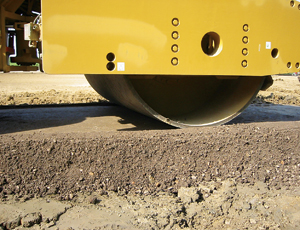In some ways the green movement has created a new generation of skeptics by generating doubt about the benefits of new products and services designed to mitigate human impact on the environment. But “greenwash” charges should not be lathered on the ones that really do deliver the goods. In heavy construction equipment, there is a huge opportunity for machinery to move down the green path, and some manufacturers are gingerly moving in that direction.

Caterpillar Inc. is about to go into production with its diesel-electric dozer, which is 25% more fuel-efficient than its predecessor. Intelligent compaction is another area that promises to cut down guesswork by 50% or more. That translates directly into less fuel burned and fewer emissions, while potentially saving taxpayers billions of dollars by improving the quality of the world’s infrastructure.
While these new technologies are paving the road toward a greener future, the men and women behind them are proceeding cautiously. Caterpillar began developing its D7E tractor in the late 1990s, introducing it publicly last year. But it decided not to call the machine a “hybrid” until recently, when a clean-tech expert finally convinced the firm that diesel-electric power, whether or not batteries are involved, is a hybrid technology.
Market research also showed the conservative company that it might make a huge mistake if it put a green logo on the side of the tractor and then fell short on the promise. Still, D7E users have urged Cat to put more razzle-dazzle behind the D7E because it would help clean up construction’s image.
Researchers studying the benefits of intelligent compaction face a similar green-image dilemma. One researcher fears state agencies will expect the machines to compact a lot better than they do. Instrumented rollers improve compaction by illuminating problems across an entire project, instead of having engineers rely on spotty measurements. That alone improves labor and fuel efficiency.
But as smart as these rollers have become, they have yet to provide efficiency solely on their own. Eco-friendly products come in varying shades of green. And as with any tool, how it is used, not the tool itself, that determines the ultimate outcome.

Post a comment to this article
Report Abusive Comment